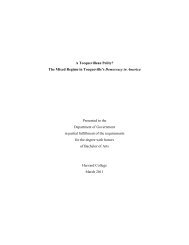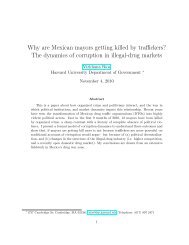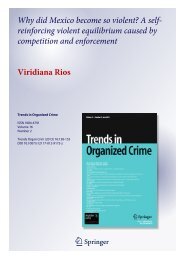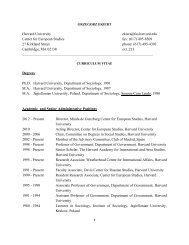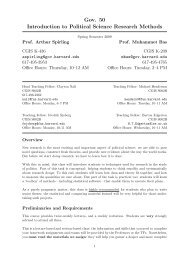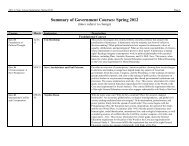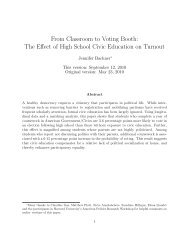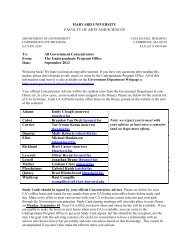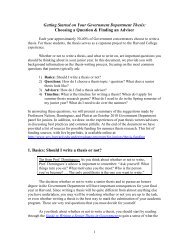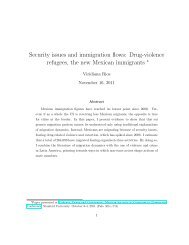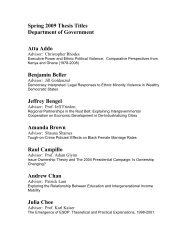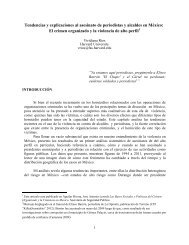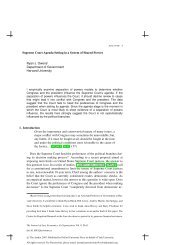1 Harvard University Political Theory Colloquium For 11 March 2010 ...
1 Harvard University Political Theory Colloquium For 11 March 2010 ...
1 Harvard University Political Theory Colloquium For 11 March 2010 ...
You also want an ePaper? Increase the reach of your titles
YUMPU automatically turns print PDFs into web optimized ePapers that Google loves.
23 <br />
who is believed to be just’ – ‘will know what he is saying’ (all 589b). To such a praiser<br />
of hidden injustice as profitable (a thinly designed portrait of Glaucon himself setting out<br />
the ring of Gyges challenge in Book II), Socrates proposes to Glaucon the following<br />
response:<br />
…let’s tell him that he is simply saying that it is beneficial for him, first, to feed<br />
the multiform beast well and make it strong, and also the lion and all that pertains<br />
to him; second, to starve and weaken the human being within, so that he is<br />
dragged along (elkesthai) wherever either of the other two leads; and, third, to<br />
leave the parts to bite and kill one another rather than accustoming them to each<br />
other and making them friendly. (588e-589a, trans. Grube/Reeve in Cooper)<br />
Notice the reference to being ‘dragged along’ (elkesthai) by the two lower parts of the<br />
soul: this is a form of the same verb embedded in ‘dragged about’ (perielkomenês) in the<br />
statement ascribed to the many at Prt. 352c2. As remarked at the outset of this paper,<br />
this reference may appear to be an unambiguously pointed rejection of Socrates’ rejection<br />
of the many’s view: in other words a revocation of the measure doctrine, in order to<br />
endorse a passional view of akrasia, allowing that indeed the other parts of the soul can<br />
drag knowledge about.<br />
I propose an alternative reading of this passage. I read the implied reference to the<br />
Protagoras instead as a signal that the real issue at stake between Socrates and the many<br />
in that dialgoue was the question of whether other psychic forces can exercise an<br />
executive role in the absence of a prior collapse of the natural wielder of such a role,<br />
which is knowledge. What is weakened when the ‘human being within’ is starved is the<br />
executive rule of knowledge. And Socrates takes care to state that the weakening must<br />
take place first: in my terms, the rule of knowledge must first collapse along with the<br />
virtues in which it is normally realized, before pleasure or other passions or emotions –<br />
whether conceived as affections or as fully fledged agent-like parts -- have a chance of<br />
taking over.<br />
It is this sequence that is really at stake in the disagreement between Socrates and<br />
the many. The many hold that pleasure may rise up even against an executively



